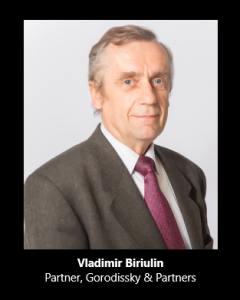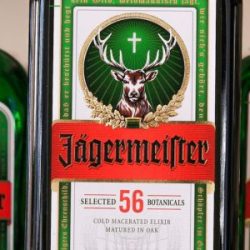 It is commonly known that some foreign companies left Russia following the onset of events in the Ukraine. That led to mass filing of trademark applications reproducing or imitating the brands of the companies that left Russia. That raised concerns among trademark owners who inferred that no IP laws are respected in Russia. The patent office quickly reacted to that and explained that filing an application and publishing it does not mean that a registration will occur. The pirate filers understood that too and discontinued the practice.
It is commonly known that some foreign companies left Russia following the onset of events in the Ukraine. That led to mass filing of trademark applications reproducing or imitating the brands of the companies that left Russia. That raised concerns among trademark owners who inferred that no IP laws are respected in Russia. The patent office quickly reacted to that and explained that filing an application and publishing it does not mean that a registration will occur. The pirate filers understood that too and discontinued the practice.
Now a new sprout has shot up. It is a single case though, at least so far. The case concerns the name Gucci Cafe read backward: Efac Iccug. At first glance, there is nothing in common with Gucci but an inquisitive mind may discern an association with the famous brand.
Gucci brand is still valid in Russia so the question arises whether the newly born designation is similar to the trademark. The answer may be found only if Gucci sues the restaurateur for infringement.
The entrepreneurs also filed a trademark application for . One may doubt that the patent office will accept the inverted GUCCI trademark, it is too easily recognizable and can hardly be perceived as a design mark.
An additional tinge to the situation is given by the inside design of the premises. The interior reproduces some elements vaguely reminiscent of Gucci’s style, such as furniture and other elements.
There are other attempts to sponge on familiar trademarks. Liquor producer “Kristall” applied to IP court with a request to discontinue protection of Disney’s trademarks “Pirates of the Caribbean” and “Dead Man’s Chest”. Kristall bases its claim on the alleged nonuse of the trademarks. Any trademark may indeed be invalidated if it is not used for three years while there is an interested person to acquire that trademark. The first hearing took place in February and the second one is expected in August 2023. So, Disney still has time to prove the use of its trademarks.
In the meantime, the stance of the judicial community and the patent office remains the same regardless of many allegations published in various sources. Time and again both authorities confirm that their line of conduct has not changed. Friendly country or unfriendly, their intellectual property is being protected and enforced. When a specific situation is being examined by courts, they look at the facts of the case and issue a judgment accordingly. There was an All-Russian Congress of Judges at which the Chief Judge of the IP court Ms Novoselova said that specific actions of a party should be reviewed within the framework of the situation which is subject of examination. In case of a different approach, there would be the risk that the companies operating in Russia may go too. It would be incorrect to waive the rights of those companies that wish to continue their operation in Russia.
The words of IP court Chief judge are echoed by Mr Zubov, Rospatent’s head. He said that all provisions regarding protection of trademarks regardless of their ownership should be complied with. He also said that politicization of this issue should be brought to an end.
The notorious judgment on Peppa Pig, later repealed, sent aftershocks through the media, and, though no such cases can be observed since then, a bad aftertaste is still felt.
In fact, despite variegated discussions and business proposals, the market observes that the authorities stick to a civilized pattern of relations in the field of IP. Abuse of rights and infringement cases are there on the market, however they may be successfully fought against provided the IP owner wishes to curb them. It is necessary to deal with every case of infringement in order to show to other participants on the market that any IP right can be enforced. This will also thwart other potential infringers from stepping on a shaky path.
Some companies continue to enforce their rights even though they left the Russian market, e.g., Robert Bosch GmbH initiated a massive campaign against infringers. It sued infringers in many regions of Russia in order to enforce its trademark rights. Beginning in March 2022, Bosch initiated 334 court cases against infringers. In less than a week in April 2023, Bosch initiated more than 45 court cases. The track record of cases initiated by Bosch in recent years shows that Bosch prevailed in almost all court cases and was awarded adequate compensation for infringement. It is interesting to note that even petty infringement (Case No А41-37404/22 of July 2022) brought 10,000 compensation while the counterfeit jig saw blades cost 200 rubles only.
As recently as in late April 2023, Valentina Matvienko, Chairman of the Council of Federation held a meeting of the Council on Intellectual Property where she said that Intellectual property should not be pirated. Special mention is deserved for trademarks, geographical indications, and other means of individualization. No one shall be allowed to use other people’s trademarks without the permission of their owners.
Hence, no risk exists for IP owners to operate in Russia.
Written by Vladimir Biriulin, Partner, Gorodissky & Partners











